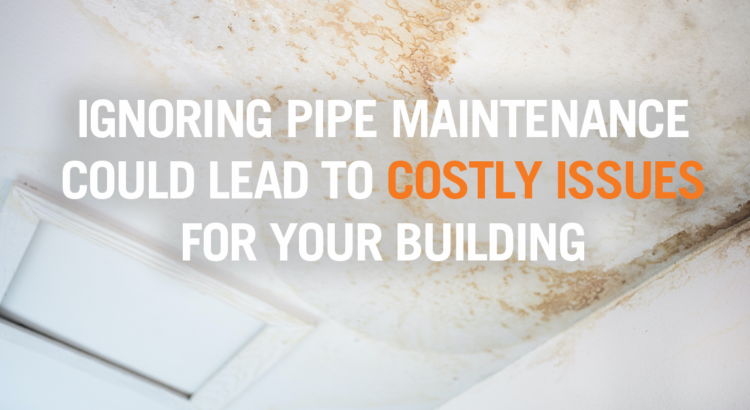Ignoring Pipe Maintenance Could Lead To Costly Issues For Your Building
Whether you’re a condominium board member or apartment owner or operator, developing an annual maintenance budget is always challenging. Everyone knows that maintaining older systems can be costly, and unexpected fixes can cost even more. And the idea of raising rents or condo fees to cover them is often taboo.
But maintenance conversations, planning, and budgeting are not only unavoidable—they’re vitally important. Deferring regular maintenance will only make the need for it greater and more costly over time. Unfortunately, as we recently witnessed in South Florida, dire and catastrophic consequences can result from putting off tough conversations about repairs.
The best and easiest way to avoid challenges down the road is to take a comprehensive, proactive approach— evaluate expected needs for the upcoming year (or years) and drill down on exceedingly important yet less common projects that need extra focus, like pipe replacement.
FACT: All Pipes Will Eventually Need to Be Replaced
Among the less-frequent maintenance needs that you may not be thinking about, but should be included on your list of maintenance items, is your building’s piping system. Once your core piping infrastructure starts to fail, the impacts are often dramatic. Leaking and broken pipes are not only unavoidable, but they often lead to moisture issues that can cause mold problems and even structural damage, as well as unexpected service outages and even temporary displacement for residents.
Repeated and extended outages are simply unacceptable for tenants and unit owners alike. But you can avoid these problems if you simply plan ahead. Here are things to keep in mind as you consider how soon large-scale pipe replacement might be needed:
- What’s happened to your pipes over the past year?
Have you had any leaks this year? How many? Were they bad? Nothing is worse than thinking you can get by for another year or two only to have a catastrophic and expensive pipe failure that you were not planning for next year. We recommend using a Leak Log to keep track of pipe failures, which can help identify potentially larger issues looming. Download ours here.
- Does your building have defective pipes or plumbing system components?
These might include polybutylene pipes, which may crack due to common water additives such as chlorine, and high-zinc yellow brass fittings, used in certain PEX pipe systems, that are subject to failure from dezincification.
- How old is your building?
Though pipes can fail early due to a number of reasons (such as water quality), age is typically the driving force behind needing a complete system replacement. If your building is over 25 years old, your pipes may have started to deteriorate and corrode and its worth checking on them annually to see how they are aging.
- Do you have loose or damp pipe insulation?
These are indicators that you may have a problem with your hydronic heating and cooling pipes including the potential for pipe wall failure, compromised insulation, or both. Damp insulation is often an early indicator of mold and other issues, so its important to address it early.
- Is the building experiencing slow-draining water, odors, or backups?
These issues could point to corrosion of your cast iron drain, waste, vent system. Knowing what to look for can help avoid excessive blockages, total system failure, and extensive water damage. Further, reports of slow draining sinks and tubs, coupled with an increasing trend in drain backups, are clear indications that pipe flow is substantially restricted by interior corrosion and buildup. - Is your water discolored, does it taste funny, or do you have low water pressure?
Complaints like these are unquestionably a sign that the hot and cold fresh water piping is severely corroded. And since you are cooking and drinking with this water, heath concerns should be a top priority if you have any of these issues.

If you are experiencing any of these sytmpoms, now is the time to start investigating and gathering information. Catastrophic failures of any one of these systems frequently result in widespread system outages, extensive damages, and resident or owner displacement.
Ready to explore your options?
Have questions about budgeting for large-scale pipe replacement? Give us a call for a free virtual consultation, or click here to schedule a live zoom meeting, and we can help you determine your next steps.


